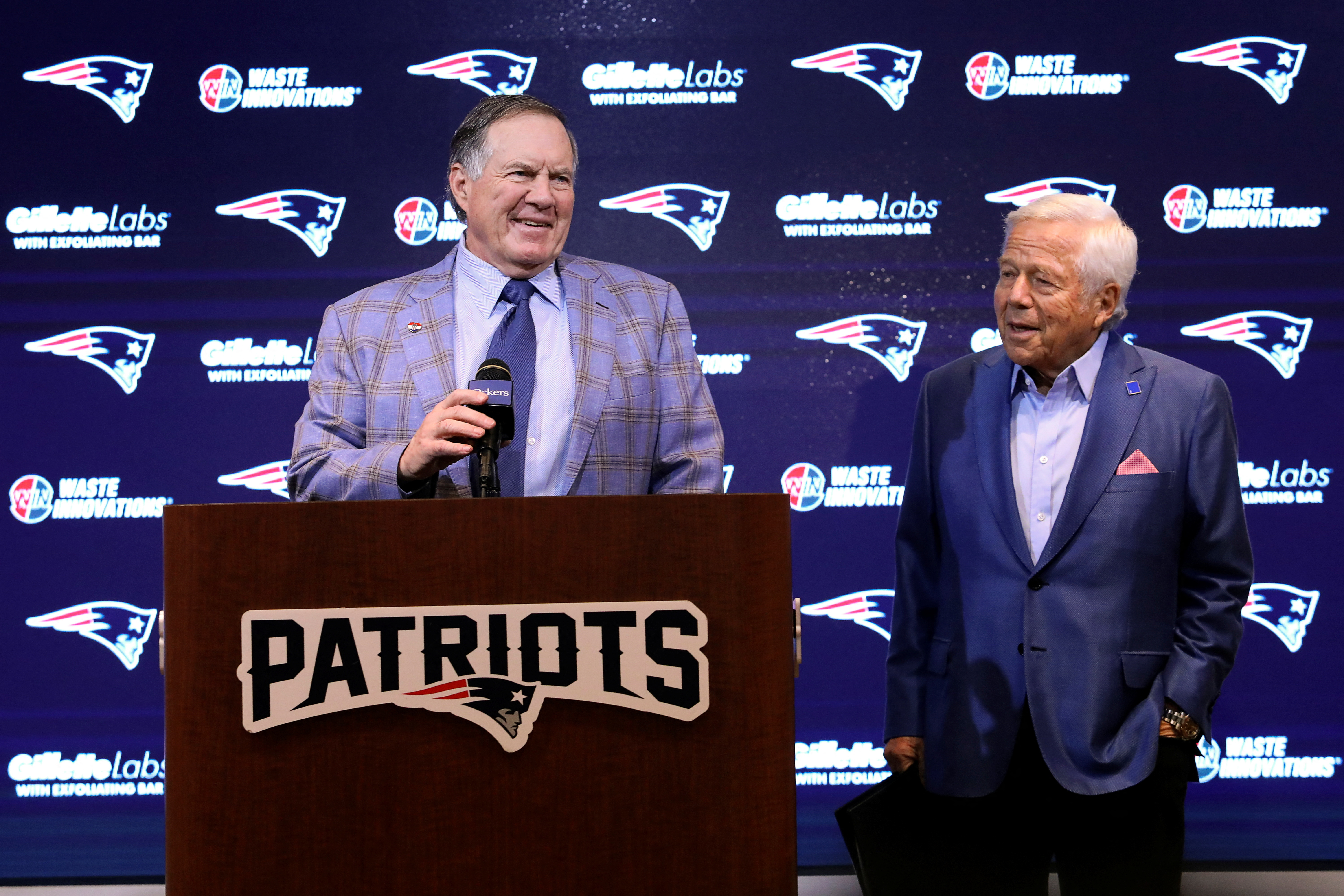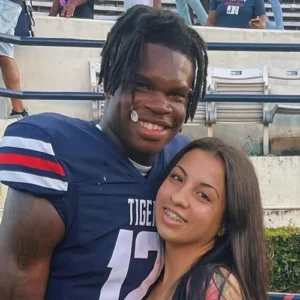If Robert Kraft, owner of the New England Patriots, were to announce a ban оп anthem kneeling at Gillette Stadium, it would likely spark significant conversation, both in favor and against the decision. Anthem kneeling, which began in 2016 when Colin Kaepernick took a knee during the national anthem to protest racial injustice, has since been a polarizing issue in American sports. Here’s how such an αππουncement might be viewed from different perspectives.

Support for the Ban
Supporters of the ban would likely argue that kneeling during the anthem is disrespectful to the flag, the country, and veterans who have fought for America’s freedoms. They may feel that the national anthem is a sacred moment for patriotism, unity, and respect, and kneeling detracts from that.
From this point of view, Robert Kraft’s decision could be seen as a way to maintain tradition and protect the integrity of the antheт сегетопу. Маny believe that sports, particularly football, should focus on competition and entertainment, not on political or social issues. By implementing this ban, Kraft could be perceived as taking a stand to keep political statements off the field and maintain a sense of neutrality during games.
Opposition to the Ban
On the other hand, critics of such a ban would likely see it as a suppression of free speech and peaceful protest. Anthem kneeling has always been about drawing attention to social injustice, particularly the disproportionate violence faced by Black Americans at the hands of law enforcement. For many, the act of kneeling is not a sign of disrespect but a powerful statement that uses a highly visible platform to advocate for change.
By banning anthem kneeling, Robert Kraft would risk alienating players and fans who see this as an important form of protest. It might be viewed as an attempt to silence athletes who want to use their platform to speak out about issues that matter to them. This could lead to backlash, not only from players but from socially conscious fans who believe that sports and activism can coexist.
Kraft’s Possible Motivations
Robert Kraft has been known to be close to many players and coaches, and he has supported social causes in the past. His decision, if it were made, might be seen as an effort to balance the demands of a diverse fan base, some of whom feel uncomfortable with anthem protests, while others view them as necessary and important. By banning kneeling, Kraft could be attempting to avoid controversy and preserve the traditional pre-game atmosphere, but he would also be taking a risk in potentially deepening the divide between fans with different viewpoints.
Conclusion
A ban on anthem kneeling at Gillette Stadium would undoubtedly be controversial. It would resonate with those who feel strongly about respecting national symbols but would also upset those who view the protest as a vital part of the ongoing fight for racial equality and justice. In an era where athletes have become increasingly vocal about social issues, this decision would place Robert Kraft and the Patriots at the center of a larger cultural debate about the role of politics in sports.
News
Billionaire Elon Musk confirmed that he has 12 children with 3 women, he must start redistributing inheritance when the 12th child is born
Billionaire Elon Musk has officially confirmed that he has had a third child with his female subordinate Shivon Zilis. Currently, Musk has a total of 12 children with 3 wоmen. In an interview with Page Six (USA), Elon Musk (52…
Every time he wins an award, Siya Kolisi gives his wife an expensive supercar to add to his car collection
Following his relocation to France, Springboks captain Siya Kolisi has added a stylish new set of wheels to his collection. Feast your eyes on his latest vehicle! Kolisi was pleasantly surprised with a brand-new Range Rover, a generous gift presented…
Justin Baldoni’s Man Enough Co-Host Liz Plank Leaves Podcast After Blake Lively Claims: ‘We All Deserve Better’ (Exclusive)
On Dec. 20 Lively accused Baldoni of sexual harassment on set and a retaliatory public smear campaign in a legal filing Justin Baldoni, Blake Lively and Liz Plank. Journalist and author Liz Plank co-hosts the podcast The Man Enough with actor-filmmaker…
Heisman Winner Travis Hunter Deactivates Instagram Account as Hatred Toward Fiancée Leanna Lenee Continues
The controversy initially began as Hunter received the Heisman trophy and many fans called out Lenee’s behavior in videos that circulated online Travis Hunter Leanna Lanee. Amid the continued vitriol going around online about his fiancée Leanna Lenee, 2024 Heisman…
Tallulah Willis Reveals She’s Engaged to Musician Justin Acee
The 30-year-old daughter of Demi Moore and Bruce Willis announced her engagement on Monday, Dec. 23 Tallulah Willis announces engagement to Justin Acee. Tallulah Willis is ready to walk down the aisle! “Everyday @justinacee,” she wrote next to the social media post…
Blake Lively’s A Simple Favor 2 Costar Michele Morrone Says He ‘Felt Her Pain’ Over Justin Baldoni’s Alleged Behavior
Morrone filmed ‘A Simple Favor 2’ with Lively shortly after she wrapped ‘It Ends With Us’ with Baldoni Michele Morrone and his costar Blake Lively. Michele Morrone is lending his support to his costar Blake Lively. On Monday, Dec. 23,…
End of content
No more pages to load











